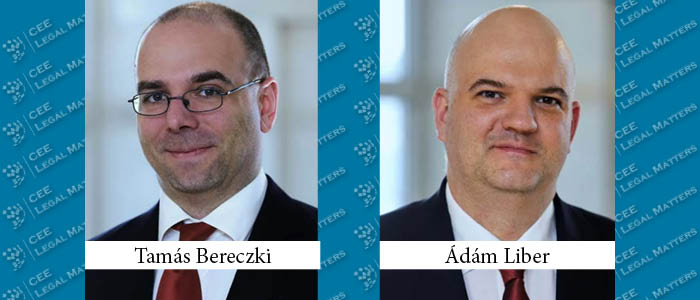With the rise of digital platforms and the possibilities that the internet provides for businesses, more and more sellers are able to offer goods and services via these platforms and the internet. In this context, it has been difficult for the Ukrainian tax authorities to trace the flow of goods and services as well as to identify sellers to ensure that these goods and services are duly taxed.
PRK Partners Promotes New Partners
PRK Partners has promoted Daniel Vejsada, Jan Ditrych, Robert Reiss, and Shiyang Zhang to Associate Partners.
Florin Tineghe, Gabor Simon, Michal Gajdus, and Piotr Miller Make Partner at DLA Piper
DLA Piper has promoted Florin Tineghe, Gabor Simon, Michal Gajdus, and Piotr Miller to Partner as part of the firm's latest promotion round.
PRK Partners Advises GoOut on Acquisition of Ticketstream
PRK Partners has advised GoOut on its acquisition of Ticketstream.
Facial Recognition and Minor Offences: New Hungarian Law Raises EU Compliance Questions
In March 2025, the Hungarian Parliament enacted legislation expanding the use of facial recognition technologies in minor offence procedures. The law is a part of broader efforts aimed at enhancing child protection measures, but has sparked considerable legal debate due to potential conflicts with European data protection laws, including the General Data Protection Regulation (GDPR) and the forthcoming EU Artificial Intelligence Act.
Hungary Finalizes Key Cybersecurity Supervisory Rules under NIS2 Framework
On 17 April 2025, the President of the Hungarian Supervisory Authority for Regulated Activities (SZTFH) issued Decree 3/2025. (IV. 17.), setting out detailed provisions on cybersecurity supervision, the conduct of regulatory inspections, and the role of the information security supervisor.
Croatia Implements EU Digital Services Act
On 17 April 2025, the Law on the Implementation of Regulation (EU) 2022/2065 on the Single Market for Digital Services (the Digital Services Act or "DSA") (the "Law") entered into force in Croatia. The Law marks a significant step in harmonising the national legislation with the EU's regulatory framework for digital services.



















